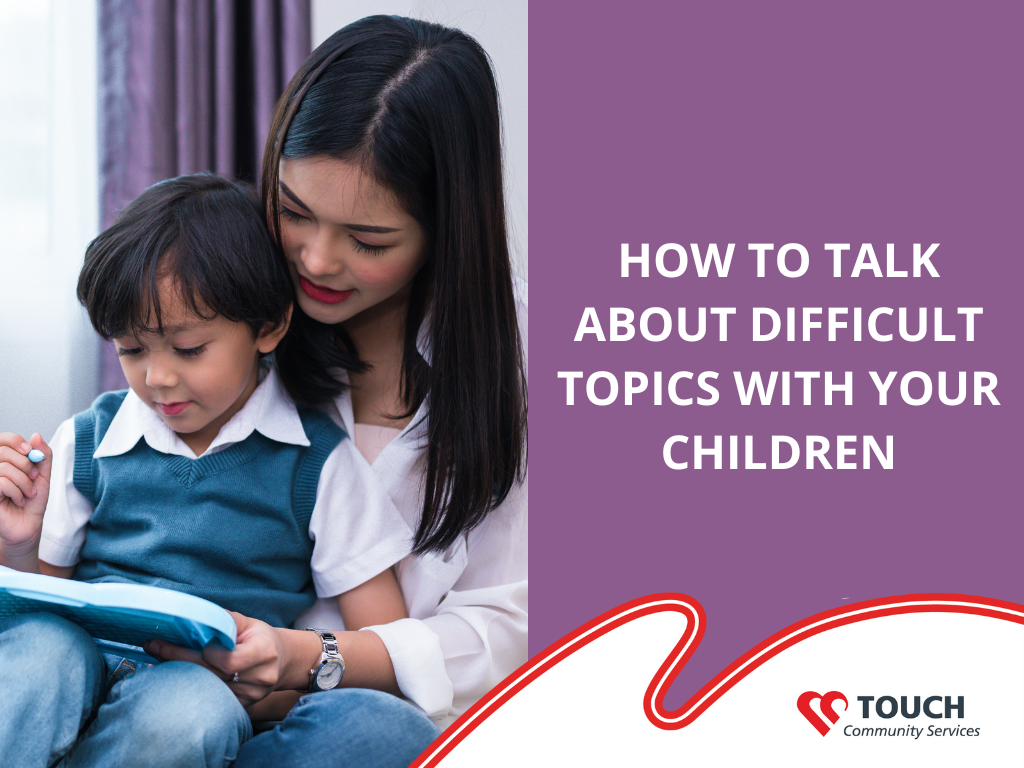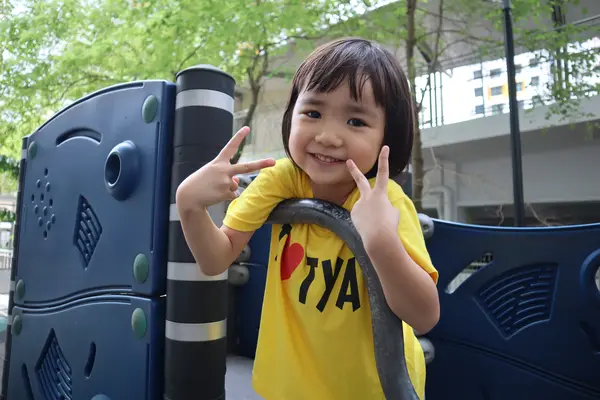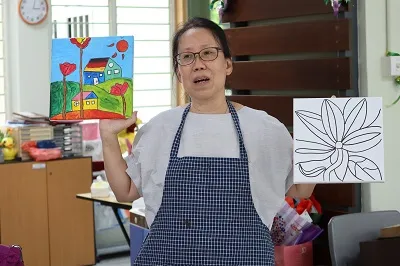How to Talk about Difficult Topics with Your Child

The pervasiveness of the internet and social media has made information around the world – both good and harmful – much easier to access, and highlights the importance of children learning from trusted adults instead of the volatile media.
While discussing difficult topics with your child can be challenging, it is crucial for their development and for progressing parent-child relationships [1]. It may be a tough process, but the capacity children have for understanding convoluted topics and handling their emotions shouldn’t be underestimated.
WHAT ARE SOME DIFFICULT BUT IMPORTANT TOPICS TO ADDRESS?
These are some topics that may be tough to talk about with your child:
- Sexuality and relationships
- Mental health and emotional well-being
- Death and grief
- Body changes and puberty
- Financial literacy and money management
- Critical thinking about online news
WHY IS IT IMPORTANT TO TALK ABOUT DIFFICULT TOPICS?
This process will help prepare children for the real world. It is also an opportunity for you to inculcate family values and correct certain mindsets your child may have been wrongly influenced by [1].
Talking to children about such topics may not be easy, as children tend to not show interest in discussing difficult topics as they are either unconcerned, unsure of how to express themselves, or feel uncomfortable or anxious by it [2]. This could lead to parents avoiding such topics as well, especially if they do not know how to broach them.
While parents can be susceptible to overdoing the conversation and turning it into a mini-lecture or “download” session, talking TO and talking WITH your child are contrasting concepts and require a different disposition.
HOW CAN PARENTS BROACH THESE TOPICS WITH THEIR CHILDREN?
Talking TO your child is a one-way communication mode. Often, parents put on the hat of a strict teacher or a military officer commanding a troop. This approach may shut your child off very quickly because they feel talked down to.
When you talk WITH your child, you put on the hat of a coach. You should aim to engage their hearts, enrich their minds, and enable their hands. This tactic is more empowering for the child. TOUCH Parenting provides pointers below on how to talk WITH your child and not TO your child to yield the best communication outcomes.
Prepare Yourself: Understand the topic well enough to answer questions accurately and confidently. Think about what you want to say and how to say it in an age-appropriate manner.
Encourage Questions: Invite your child to ask questions and answer them as honestly and clearly as possible. Clarify any misunderstandings and correct any misinformation your child may have.
Have Open Communication: Provide honest and straightforward explanations without cherry-picking explanations or overwhelming your child with too much information. Validate your child’s feelings and let them know it’s okay to feel negative emotions.
Provide Reassurance and Support: Reassure your child that they are safe and loved. Discuss coping strategies with your child and provide support resources if necessary.
Have an Ongoing Dialogue: Check in with your child after the initial conversation to see how they’re feeling and if they have any new questions. Let your child know that it’s okay to come back to you anytime they have more questions or need to talk.
Have any questions on parenting or want to find out more about our programmes? Contact TOUCH Parenting at parenting@touch.org.sg today.
TOUCH Parenting provides holistic family education by equipping parents with relevant knowledge, resources and skills through every stage of their parenting journey. Our programmes empower parents with evidence-based and evidence-informed strategies to help them parent successfully in the 21st century. It is also appointed by the Ministry of Social and Family Development as the Parent Support Provider (PSP) for Jalan Besar/Toa Payoh Region.
Sources
1. “Talking about tough topics with children” Raising Children, https://raisingchildren.net.au/toddlers/connecting-communicating/tough-topics/tough-topics
2. “My child just doesn't want to talk about it! 3 things to know and 5 tricks to try” Developing Minds, 9. Jun 2017, https://developingminds.net.au/blog/2017/6/9/my-child-just-doesnt-want-to-talk-about-an-important-topic-3-things-to-know-and-5-tricks-to-try


